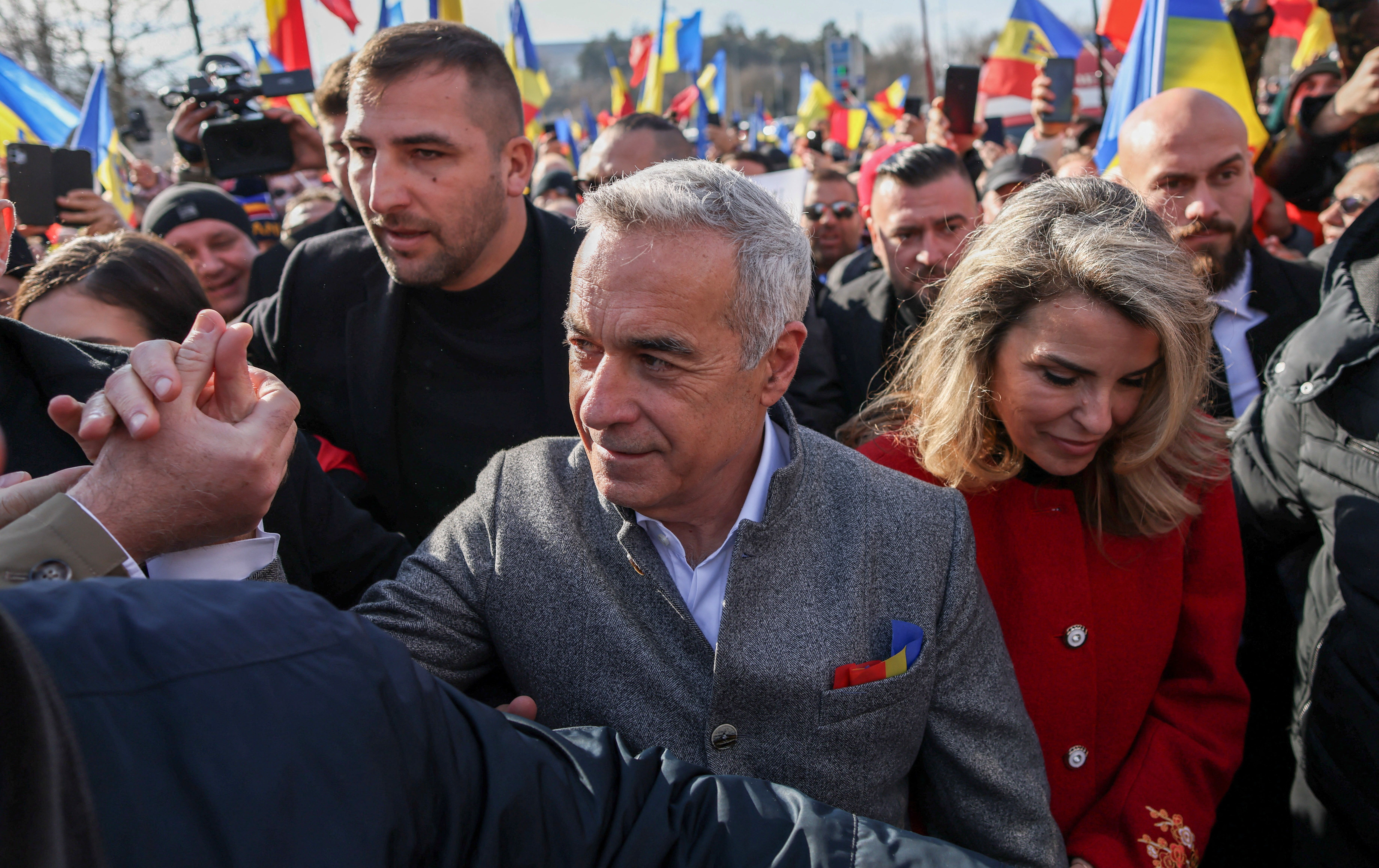It’s been often warned that democracy dies in darkness, yet Romanian democracy is dying not just in broad daylight but with support from broad swathes of the transatlantic establishment.
The Sunday decision by Romania’s Central Electoral Bureau to block Călin Georgescu, a right populist and nationalist who emerged from obscurity to become Romania’s frontrunner for the presidency, was far from unexpected, but remains deeply concerning in its implications both for Romania’s constitutional order and U.S.-EU relations.
Georgescu’s trouble began with a December 2024 decision by Romania’s constitutional court to annul his victory in the first election round on allegations (without adequate evidence) of Russian TikTok interference, followed by recurring police raids against his supporters and his arrest several weeks ago on the basis of equally murky criminal charges, which include “incitement to actions against the constitutional order,” the “communication of false information” and involvement in the establishment of an organization “with a fascist, racist or xenophobic character.”
This culminated with the court decision on Sunday to block his candidacy without adequate explanation.
As previously explained in these pages, the allegations that led to the initial annulment are so substantively weak so as to make it astonishing that a court would even contemplate overturning a democratic election on these grounds. The Central Electoral Bureau’s published explanation largely recapitulates the court’s position, justifying this drastic intervention into the democratic process on the somewhat ironic grounds that Georgescu, victor of the first round and frontrunner by a wide margin, failed to uphold his “very obligation to defend democracy.” This is not democracy but “democratism” — an official ideology that like Soviet Communism, has no necessary connection to actual practice.
One cannot but reasonably infer from this deliberate sequence of events — the poorly explained and constantly evolving allegations of criminal conduct, invections of foreign meddling without so much as even circumstantial proof, relentless attempts by law enforcement to target his supporters and allies, and the government’s miraculously well-timed discovery of a nominally unrelated far-right, pro-Russian putsch — that a united Romanian establishment is grimly determined to prevent Georgescu, who has maintained a commanding lead in virtually every poll conducted since December of last year, from standing in the presidential election.
It is likewise difficult for even the most fervid epistemological optimist to ignore that all of this is happening under the noses of EU leaders who've so far refrained from raising even the mildest procedural or substantive objections. The contrast with the EU’s approach to Viktor Orban’s far milder infringements of democracy is stark.
To the degree that EU organs have weighed in, it was to unreservedly lend support to the Romanian government’s actions. The European Court of Human Rights tossed Georgescu's bid to overturn the annulment of the first election round. Former Commissioner for Internal Market of the European Union Thierry Breton cryptically said in an interview that the EU is prepared to do in Germany’s February federal elections what it did in Romania, feeding the impression — one which Brussels has certainly not taken steps to dispel — that the EU has become a witting observer, if not a partner, in Georgescu’s political defenestration.
Romania’s roiling constitutional crisis is a perfect simulacrum of a larger dispute over the shared democratic values purportedly at the heart of the transatlantic alliance. Scores of Western and European capitals have indulged the proclivity, kicked into high gear after the 2022 Russian invasion of Ukraine, of gatekeeping access to democratic politics in the name of defending democracy from malign external influence and radical domestic actors.
The Trump administration has sharply criticized this approach, with Vice President JD Vance expostulating in Munich that Romania’s election was annulled “based on the flimsy suspicions of an intelligence agency and enormous pressure from its continental neighbors.” If Vance’s speech was, as it appears, a gauntlet thrown down before European and Romanian authorities, then the decision to block Georgescu from running makes clear that the European stakeholders in question have no intention of changing course even when directly pressed by the White House to do so.
It remains to be seen how far the administration will push this issue, whether in the form of closed door consultations with Romanian or EU officials, public expressions of concern for the state of Romanian democracy, or even punitive measures against Bucharest.
There are two conclusions that can be drawn at this early stage. The Georgescu affair will cast a further pall on EU-U.S. relations in the short to medium term, as it will be taken by key figures in the administration as a reification of their concerns and suspicions toward Europe. The policy and philosophical rift that emerged principally over competing visions for seeking peace in Ukraine will continue to widen and harden in ways that will make a future mending of fences more difficult to achieve.
The costs of this estrangement will be more keenly felt by Europe, which is geopolitically, economically, and militarily much more dependent on the United States than the other way around.
In the longer term, such episodes serve to gradually build the American case for retrenchment away from Europe. American transatlanticism and the security relations that underpinned it were sustained after 1991 not by concrete U.S. national interests but by a combination of U.S. global ambition and the perception of a special relationship built on a unique ideological affinity between the two poles. That genie is now out of the bottle in ways that cannot be reversed.
The U.S. has and will continue to hold vital interests in Europe, but they will be articulated a great deal more narrowly and pragmatically than under previous administrations. Transatlanticism, as it has existed for the past three decades, cannot be saved, nor should we try to. The pacing goal on both sides of the Atlantic should be to renegotiate a framework for cooperation based not on abstract values, over which there is clearly growing disagreement, but on concrete economic and defense interests.
















